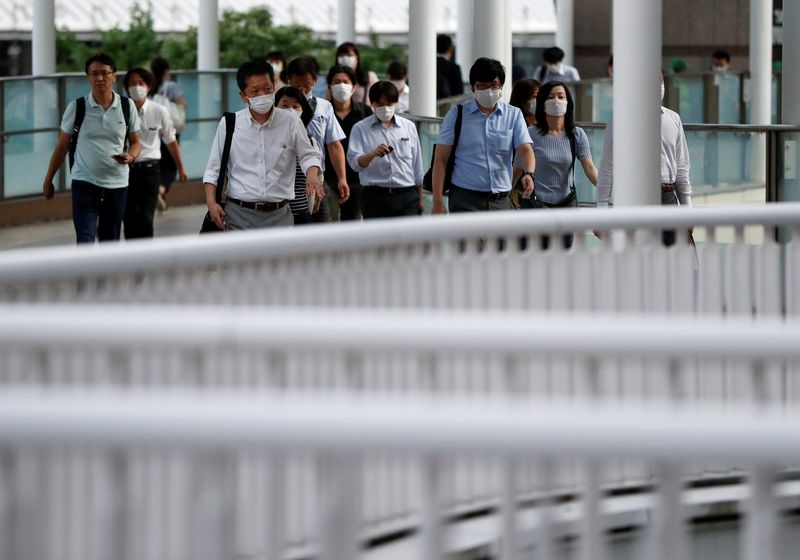
Office workers wearing protective face masks head home during the spread of the coronavirus disease (COVID-19), at a station in Tokyo, Japan June 24, 2020. REUTERS/Issei Kato
March 15, 2022
By Tetsushi Kajimoto
TOKYO (Reuters) – Japan’s top firms are set to offer pay rises of around 2% or more as annual labour talks wrap up on Wednesday, a boost from last year’s razor-thin increase that is still unlikely to kick-start domestic demand in a moribund economy.
Prime Minister Fumio Kishida has piled pressure on profitable firms to raise pay by 3% or more as part of his drive to spread wealth more widely.
Low wages remain one of the most pressing problems for the world’s third-largest economy, where companies and households tend to hoard cash instead of spending thanks to years of deflation. The annual wage increases by large firms set the tone for the rest of the economy and are therefore closely watched.
This year, analysts are focused on whether companies will raise pay by 2% or more. Blue chip firms last year offered their lowest pay increases in eight years, at 1.86%. Economists say any boost for workers is likely to be offset by recent increases in fuel and food prices.
The Rengo trade union confederation has gone so far as to call for a 4% increase. But, as ever, Japanese firms remain cautious.
While corporate Japan is already sitting on a record $2.8 trillion in cash and deposits, managers point to the Ukraine crisis, spiking oil prices, a weakening yen and the COVID-19 pandemic as reasons to save money.
Last year’s pay rises were hampered by the pandemic, further complicating the central bank’s drive to see 2% sustainable inflation.
Automobile companies, which have strong influence on nationwide wage talks, have already agreed to meet their union demands in full.
Some companies are shifting away from uniform wage hikes towards a more varied approach on remuneration. More of them are adopting merit-based wages, rather than seniority-oriented pay, to lure skilled talent.
The move coincides with structural changes in the labour market. About 40% of workers consist of part-time staff and contract workers, double the proportion seen in 1990, many of whom do not belong to labour unions.
Improving working conditions and minimum wages for these low-paid “non-regular” workers are also a focus of the labour talks. Apart from wages, labour productivity and work-style reform are topics that will likely be discussed.
(Editing by David Dolan and Jacqueline Wong)

